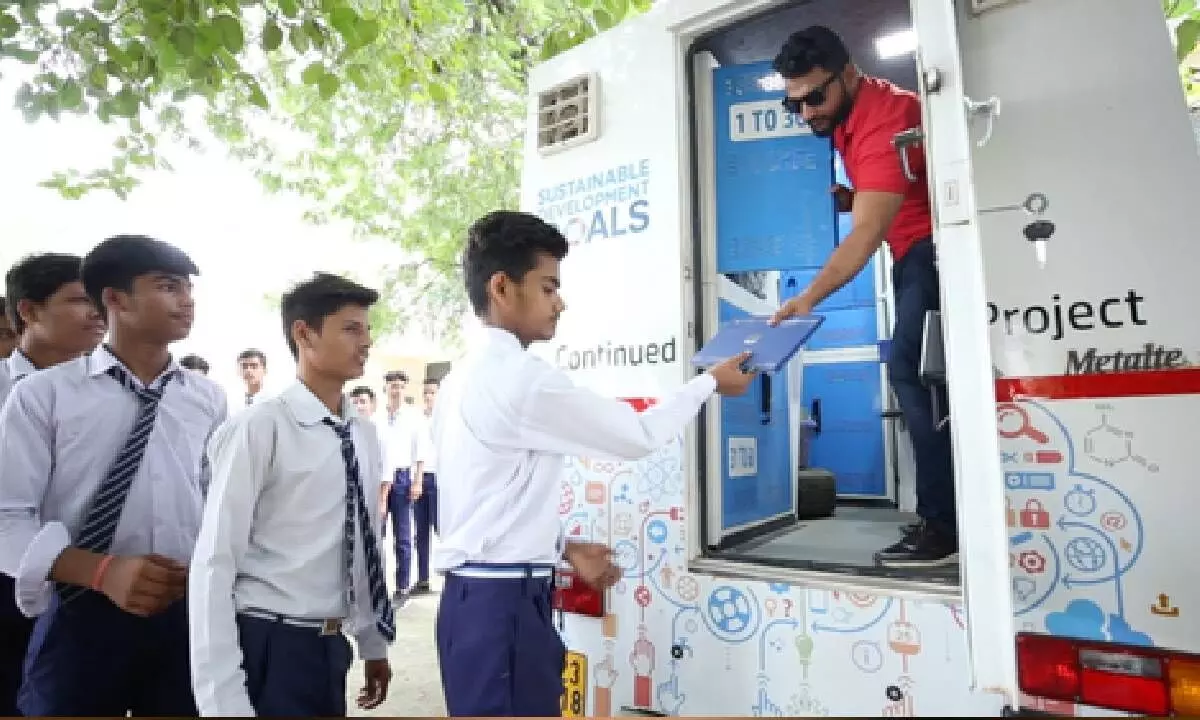HP’s 'CLAP' initiative empowers over 3.5L people in Indian villages
With the deployment of 30 fully equipped mobile learning centres, PC and printer major HP on Wednesday announced that its digital education programme 'CLAP' (Creating Learning and Advancement Possibilities) transformed the education landscape across 200 Indian villages, empowering more than 3,50,000 individuals.
image for illustrative purpose

New Delhi, Oct 4 With the deployment of 30 fully equipped mobile learning centres, PC and printer major HP on Wednesday announced that its digital education programme 'CLAP' (Creating Learning and Advancement Possibilities) transformed the education landscape across 200 Indian villages, empowering more than 3,50,000 individuals.
On a global scale, HP has already made remarkable strides in accelerating digital equity for more than 21 million people, with a grand vision to impact 150 million by 2030.
With strategic programmes, investments, and partnerships, HP focuses on eradicating the digital divide for women, girls, marginalised groups, and educators -- a move that supports equal access to education and economic prospects.
"Our ongoing efforts will continue to drive positive change, foster sustainability, and work towards building a more inclusive digital ecosystem that benefits all members of the community," said Gurpreet Singh Brar, Vice President, HP India market.
"By empowering individuals with the ability to navigate and harness technology, we aim to break down barriers and unlock new avenues for growth and development," he added.
Amid these endeavours, HP's transformative impact becomes even more pronounced with its World on Wheels (WoW) programme.
HP's solar-powered mobile learning labs have penetrated remote corners, bringing digital literacy, education, entrepreneurship, and citizen services to those who need them most. These labs, equipped with HP technology, have directly benefited around 650,000 people in rural areas.
Additionally, the HP Accessible Learning for All (ALFA) programme is another crucial endeavour. It strives to equip over 2,000 classrooms and introduce cutting-edge laboratories in government- and NGO-run schools.
By doing so, it has significantly improved the quality of education for over 620 thousand students, promoting digital learning and nurturing the potential of the next generation.
Another initiative, HP Common Service Labs (CSL), established in remote and underserved areas, provides healthcare, education, and essential services to communities in need, underscoring the company's commitment.
In the last two years, these solar-powered centres with telemedicine facilities have reached approximately 12,936 people, demonstrating HP's commitment to leaving no one behind.

